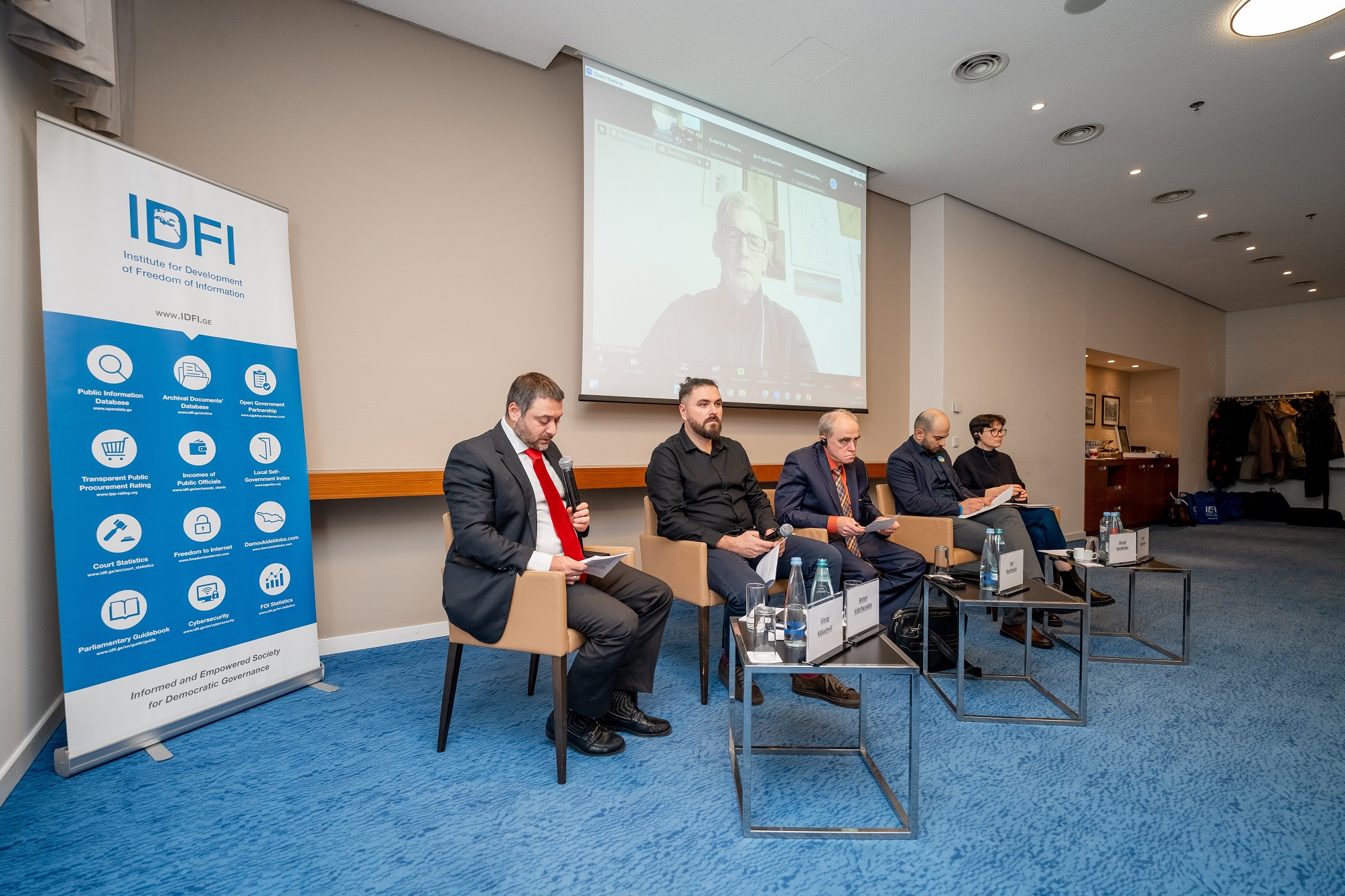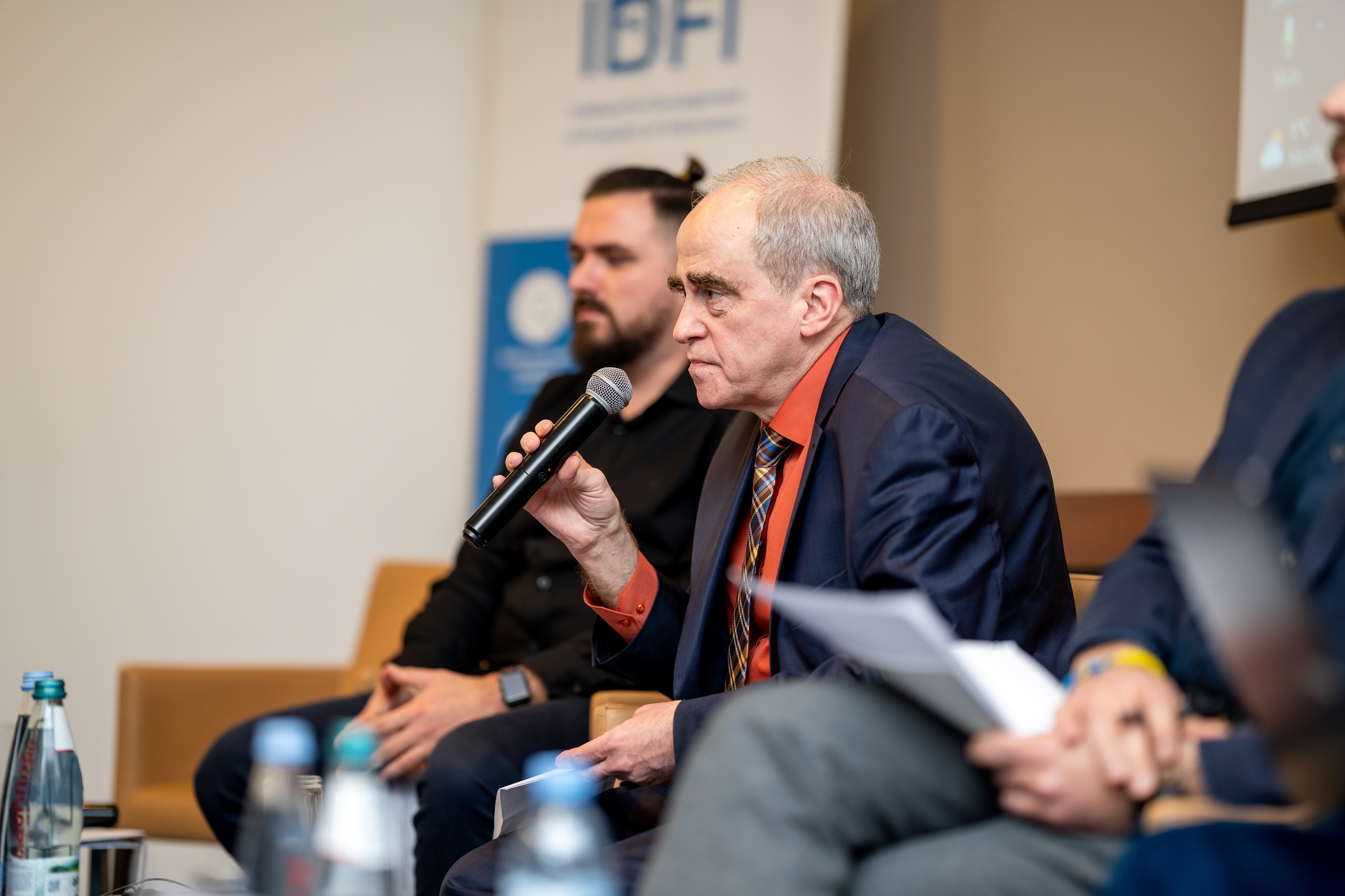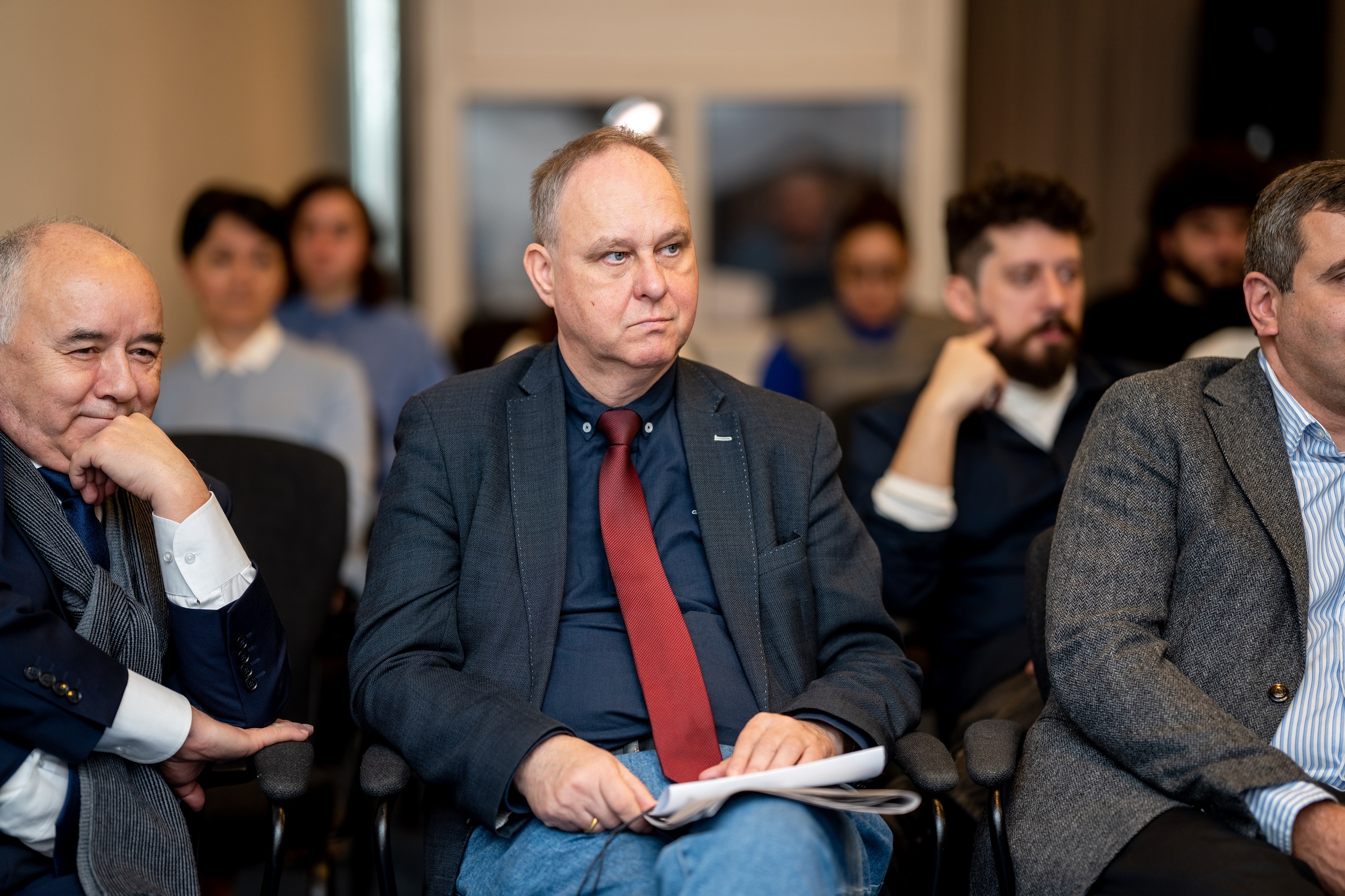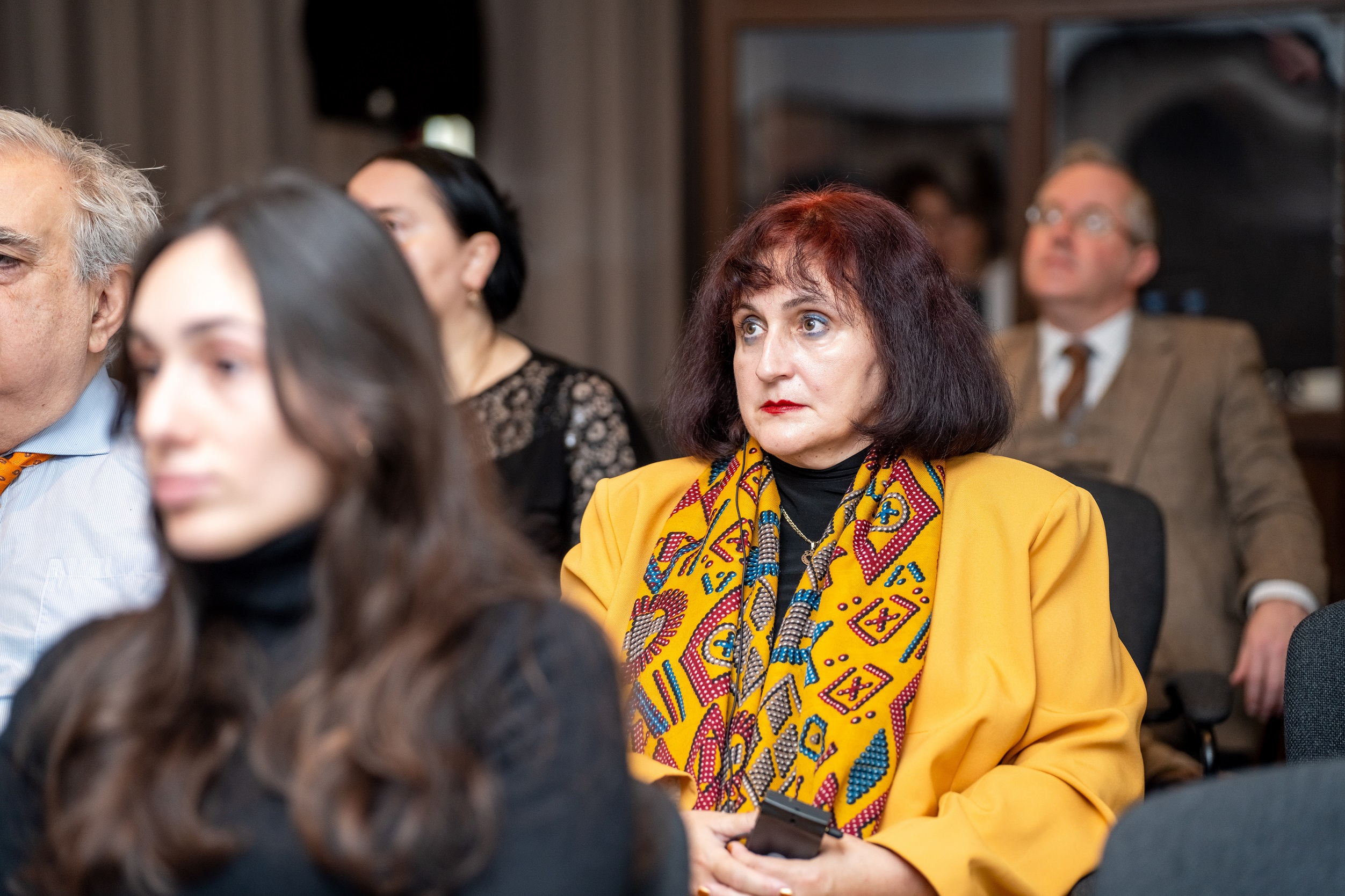


 On December 16, 2022, the Institute for the Development of Freedom of Information (IDFI) with the financial support of the Swedish International Development Cooperation Agency (Sida) held the 4th international conference: The importance of openness of state archives in reevaluating the Soviet past and standing against propaganda. The event was held in a hybrid format - attendance was also possible online, via the ZOOM platform.
On December 16, 2022, the Institute for the Development of Freedom of Information (IDFI) with the financial support of the Swedish International Development Cooperation Agency (Sida) held the 4th international conference: The importance of openness of state archives in reevaluating the Soviet past and standing against propaganda. The event was held in a hybrid format - attendance was also possible online, via the ZOOM platform.
Throughout the conference, Georgian and international experts discussed the openness of archives, memory politics and ways to solve challenges related to these topics. The conference focused on the manipulation of historical narratives, disinformation, preservation of archives in crisis and other important issues, the relevance of which was highlighted by the Russian war in Ukraine.
Historians, researchers, lawyers, and well-known specialists in history and memory studies from different countries, who have been working for years on the most important issues related to historiography and memory studies, participated in the conference.
Giorgi Klidiashvili, the co-founder and executive director of the Institute for the Development of Freedom of Information (IDFI), opened the conference with a welcome speech. He, first of all, congratulated the Chairman of the Nobel Peace Prize laureate organization, International Memorial, Ian Rachinskii, on the award and thanked him for participating in the conference. He also thanked the Ambassador of Poland to Georgia, Mariusz Maszkiewicz, who pays special attention to the issues of common memory of Georgia and Poland.
Giorgi Kldiashvili noted that the importance of the openness of archives and the re-evaluation of the Soviet past is particularly evident in light of the ongoing war in Ukraine.
"In order to confront manipulations, it is necessary to open archives and ensure access to them, because primary documentary sources are the most important basis for objectively understanding and interpreting recent history, and at the same time, raising the awareness of the population about state governance" - Giorgi Kldiashvili.
The president of the International Center for Archival Research (ICARUS), Thomas Aigner, addressed the conference speakers and the audience. He noted that in the digital age it is important to have free information. And all the issues related to the openness of archives become important during the evaluation-reevaluation of history, especially when it comes to the Soviet Union.
The conference consisted of four broad discussion panels.
 The first panel was moderated by Anton Vatcharadze, head of the memory and disinformation studies direction at the Institute for the Development of Freedom of Information (IDFI).
The first panel was moderated by Anton Vatcharadze, head of the memory and disinformation studies direction at the Institute for the Development of Freedom of Information (IDFI).
Chairman of the 2022 Nobel Peace Prize laureate historical, educational and human rights society - International Memorial, Ian Rachinskii, presented the report “Instrumentalization of history in Russian politics: between megalomania and persecutory mania”. Rachinskii noted that the development of historical sciences in Russia is in a bad condition, because of the strict state control. There are many cases of influencing public opinion and limiting discussion, and the practice of diverting the attention is actively introduced. “There are no facts in modern Russia, only interpretations and this trend is being introduced in Russian historiography. As a result, there is no immunity to disinformation in the general public” - he mentioned.
Iryna Ramanava, a professor at European Humanities University (EHU, Vilnius, Lithuania), talked about the “Actualization of "acute" places of memory during and after protests in Belarus in 2020”. She emphasized the importance of having an independent historiography and providing the relevant material in school textbooks from an unbiased angle.
Giorgi Kandelaki, project manager at the Soviet Past Research Laboratory (SOVLAB), spoke about the instrumentalization of Soviet history in Georgia and the resurgence of Joseph Stalin’s image.
The second panel was moderated by Timothy Blauvelt, Associate Professor of Soviet and Post-Soviet Studies at Ilia State University. Throughout the panel, attention was focused on ways to save archives in crisis conditions.
Director of the Sectoral State Archive of the Security Service of Ukraine, Andriy Kohut, spoke about the archives of the State Security Committee of Ukraine (КГБ) during the war and discussed the challenges of storing archival documents and accessing them. He drew attention to the situation caused by the Russian threat and the importance of digitization of archival materials.
A lawyer collaborating with the “First Department”, Artyom Kutlovsky, spoke about access to information and working in archives in Russia during the war in Ukraine. He drew attention to the problems related to information access in the archives of Russia, the dangers that arise during work and the mechanisms of protection of researchers.
 The third panel was moderated by the program director and co-founder of the Institute for the Development of Freedom of Information (IDFI), Levan Avalishvili. He once again spoke about the importance of archival openness and, in this regard, the need to take steps.
The third panel was moderated by the program director and co-founder of the Institute for the Development of Freedom of Information (IDFI), Levan Avalishvili. He once again spoke about the importance of archival openness and, in this regard, the need to take steps.
Anton Vacharadze, head of the memory and disinformation studies direction at the Institute for the Development of Freedom of Information (IDFI) presented on the Open-Archives.org platform the rating of archival openness of Estonia, Macedonia and Bosnia and Herzegovina. He discussed the research methodology and talked about the challenges in relation to archival law.
Senior researcher at the Estonian Institute of Historical Memory, Meelis Sauaeuk, presented the research on archival openness in Estonia. During the presentation, he talked about the decision of the Estonian government, according to which the KGB files were transferred to the state archive without special restrictions because the Estonian government does not intend to protect the secrets of the Soviet Union.
Head of the Department for Cultural History at the Institute of National History (Skopje, North Macedonia), Biljana Ristovska-Josifovska, presented a report “Macedonian Archiving Practices - from Foreign Domination to National Sovereignty”. She focused on the chronology and importance of archival documentation storage and archival activities in Macedonia.
PhD candidate at UC Berkeley, Harrison King, talked about his personal testimony and experience in researching the Soviet "Ajaristan" in Georgian Archives. He noted that Georgia is an excellent place to conduct research because the archives of Georgia keep a lot of material. However, during the research of Soviet "Ajaristan", in terms of access to archival documents, obstacles were apparent, which could not be overcome so far. On the part of the archives, the reason for restricting access to the documents was, in many cases, the restoration works, which made it difficult to complete the research in a timely manner.
During the 4th panel, Timothy Blauvelt, Associate Professor of Soviet and Post-Soviet Studies at Ilia State University, discussed 'De-Centering' and 'De-Colonizing' the Field in History Teaching.
Nino Chikovani, professor of cultural studies at Ivane Javakhishvili Tbilisi State University, Faculty of Humanities, presented a report - "April 9 tragedy and the depiction of civil strife in textbooks". Based on her report, she discussed the compatibility of the materials presented in the textbooks with respect to the goals determined by the national standard. She also discussed the content of the textbooks and presented recommendations.
 PhD Candidate at Vytautas Magnus University (Kaunas, Lithuania), Faculty of Political Science and Diplomacy, Mirkamran Hüseynli and PhD Candidate at Central European University (CEU), department of history, Flora Ghazarian presented the report: “Rewriting National History Textbooks in Armenia and Azerbaijan: New Methodology and the Question of Archives''. Throughout the presentation, the school history textbooks of Azerbaijan and Armenia were discussed. They pointed out that textbooks cannot be innovative if state ideology controls their production system.
PhD Candidate at Vytautas Magnus University (Kaunas, Lithuania), Faculty of Political Science and Diplomacy, Mirkamran Hüseynli and PhD Candidate at Central European University (CEU), department of history, Flora Ghazarian presented the report: “Rewriting National History Textbooks in Armenia and Azerbaijan: New Methodology and the Question of Archives''. Throughout the presentation, the school history textbooks of Azerbaijan and Armenia were discussed. They pointed out that textbooks cannot be innovative if state ideology controls their production system.
The director of the Program on Georgian Studies at Harvard University, professor of Russian and Eurasian Studies at Mount Holyoke College, and professor of Modern Georgian History at Ilia State University in Georgia, Stephen F. Jones talked about "How Libraries and Archives Contribute to Democracy". He spoke about the importance of archives and noted that archives help us remember the mistakes of the past so that they don't happen again. At the same time, he focused on the actions to be taken by the government and municipalities, which should ensure the proper functioning and openness of archives.
During the conference, a question-and-answer discussion was held between the panels. Ultimately, the conference participants agreed to continue advocating for the openness of archives in their respective countries.
Please find the agenda of the conference here.
The conference was organized with the financial support of the Swedish International Development Cooperation Agency (Sida).